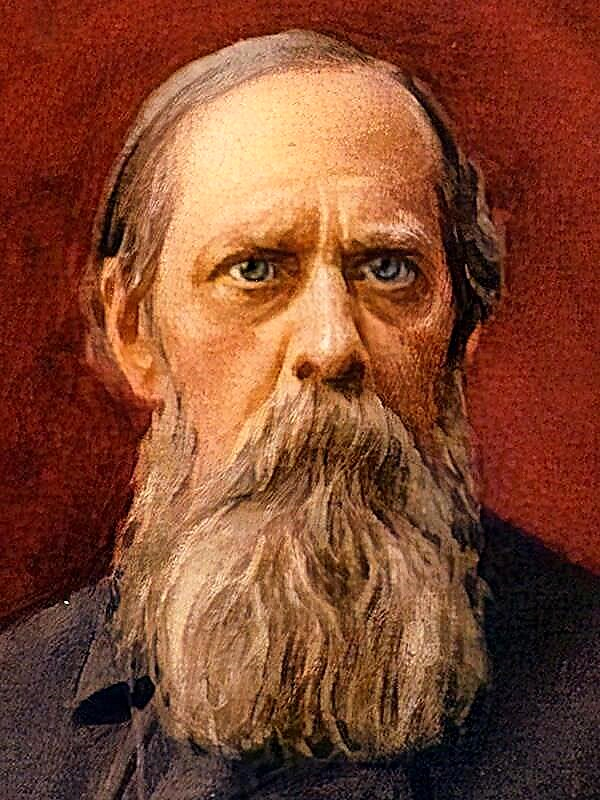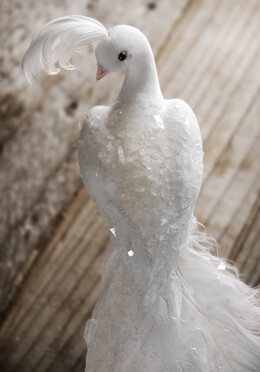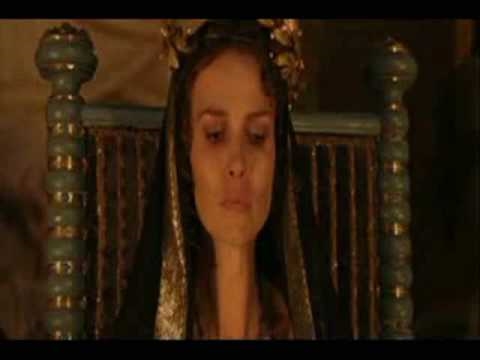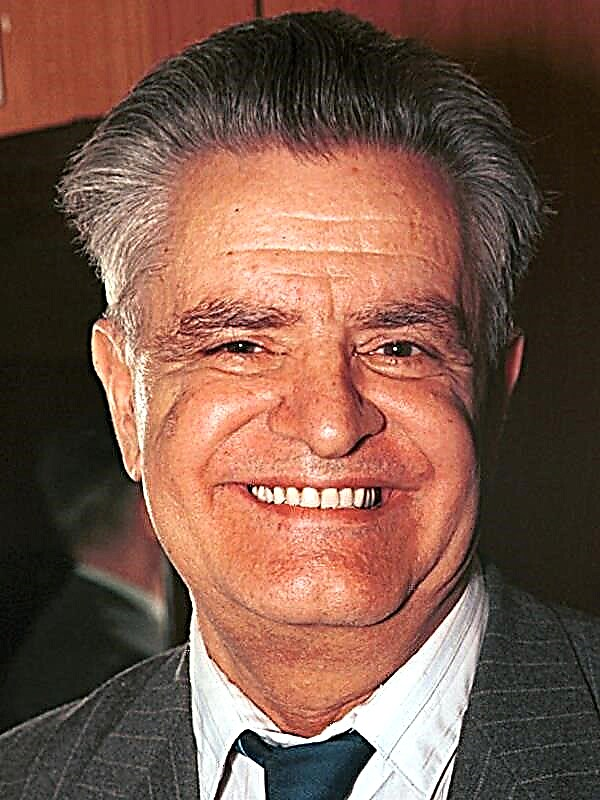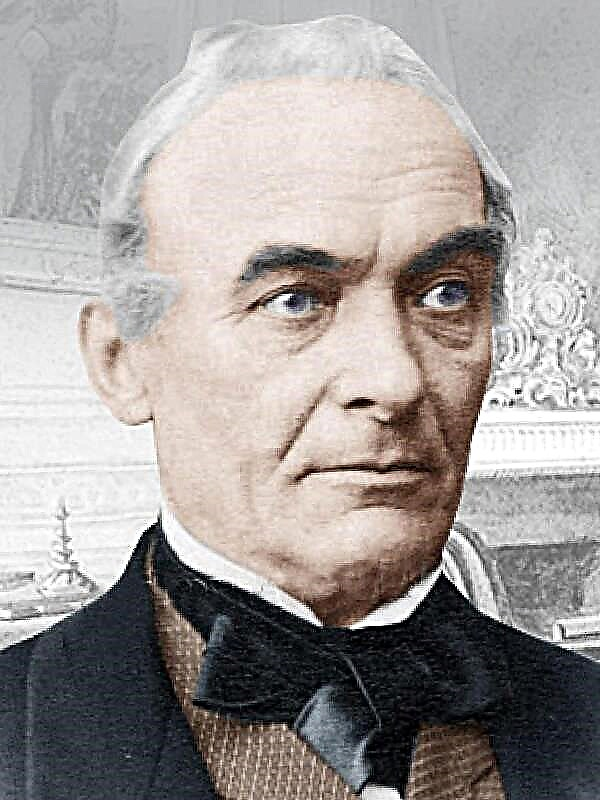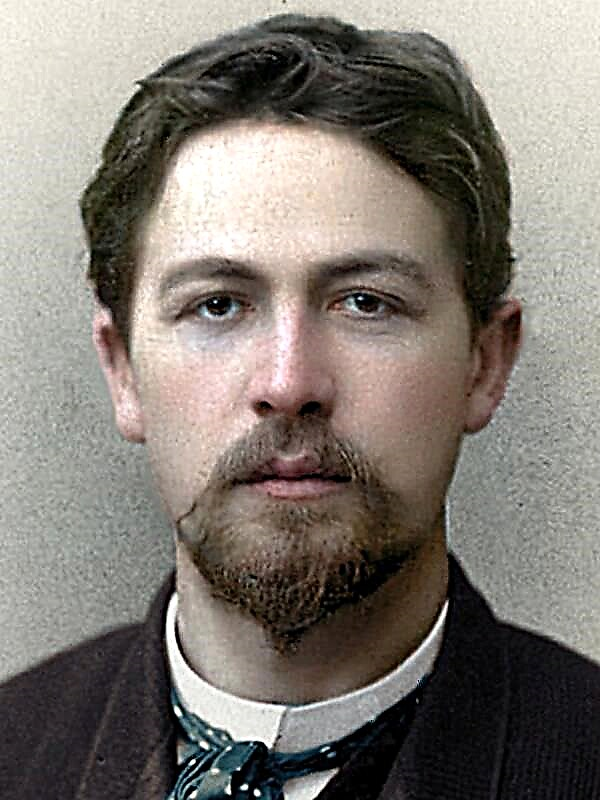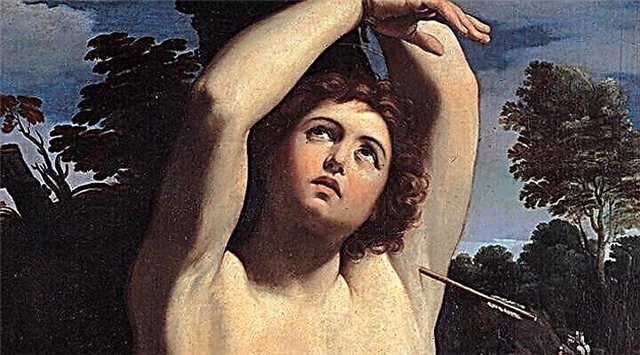The cycle consists of four tales: “Spring Sonata”, “Summer Sonata”, “Autumn Sonata” and “Winter Sonata”. He was informed of the author’s “Advance”: “This book is part of the“ Pleasant Notes ”which the Marquis de Bradomin began to write in gray emigration. It was an amazing don Juan. Perhaps the most amazing of all! Catholic, ugly and sentimental. "
Spring sonata
Mid XIX century Young Marquis Xavier? de Bradomin arrives in Liguria on behalf of His Holiness to bring the cardinal hat to Monsignor Stefano Gaetani. He catches the venerable prelate at death in the sister's house, Princess Gaetani. The room where the dying man lies is immersed in a mysterious twilight. The prelate lies on an old bed under a silk canopy. His proud profile of the Roman patrician looms in the darkness, motionless, deathly pale, as if sculptured from marble. In the back of the room, Princess Gaetani and her five daughters on their knees pray at the altar. The princess has golden eyes and golden hair.
The daughters of the princess - Maria del Carmen, Maria del Pilar, Maria de la Soledad, Maria de las Nieves - look like her. Only the eldest, twenty-year-old Maria del Rosario, has black eyes, especially noticeable on a pale face. The Marquis instantly falls in love with Maria Rosario, who is about to leave for the monastery. “Looking at her, I felt that love was burning in my heart, ardent and trembling, like some kind of mystical flame. All my passions seemed to be cleansed in this sacred fire; now they smelled like Arabian incense ... ”Monsignor Gaetano dies. He is buried in the Franciscan monastery. The bells are ringing. Returning to the princess’s palace, the Marquis catches Maria Rosario at the door of the chapel, where she gives alms to a crowd of beggars. The girl’s face glows with meekness and affection, like the face of a madonna. She is full of simple faith, she lives in her palace, as in a holy monastery, peace emanates from her. It is time for the marquise de Bradomin to return to Rome, but the princess asks him to stay for a few more days, and on her behalf, Maria Rosario writes a letter to his Holiness with a request to allow the marquise to stay. Meanwhile, a white cassock is brought from the Carmelite monastery, which Maria Rosario will have to wear until the end of her days. The girl puts it on. She seems to be holy to Bradomin, but this only strengthens his attraction to her. At his approach, the girl is always embarrassed and tries to hide. The marquise's Don Juan pride is flattered; it is spurred by youthful enthusiasm. Bradomin is convinced that Maria Rosario is in love with him, and at the same time a strange and disturbing foreboding seizes his heart. One night, he sneaks up to the window of Maria Rosario and jumps into it. The girl screams and falls without feelings. Bradomin picks it up and puts it on the bed. It extinguishes the lamp and already touches the edge of the bed, when it hears someone's footsteps. Then an invisible man walks to the window and peers into the back of the room. When the steps are removed, Bradomin jumps out of the window and sneaks along the terrace. Before he could take a few steps, a dagger blade pierced his shoulder. The next morning, meeting with the princess, Bradomin sees in her eyes undisguised hatred. The Marquis is about to leave. He catches Maria Rosario in the hall, she arranges flowers in vases for the chapel. The conversation between the Marquis and Maria Rosario is full of passion. The girl prays to Bradomin to leave - he seems to her to be the devil. At the door of the hall appears the youngest of the sisters, five-year-old Maria Nieves. Maria Rosario calls her, and the girl first tells the marquise and sister a long confused story of her doll, then runs away to the other end of the hall. From time to time, Maria Rosario calls her up, afraid to be alone with Bradomin.The Marquis is explained to Maria Rosario: “Everywhere, even in the monastery cell, my worldly love will follow you. Knowing that I will live in your memories and in your prayers, I will die happy. ” Maria Rosario, pale as death, with trembling hands reaches for the girl, who before that put him on the windowsill. Suddenly the window swings open and Maria Nieves falls through the window, onto the steps of a stone staircase. “Devil! .. Devil! ..” cries Maria Rosario. The Marquis picks up the dying girl and hands her to the running sisters. Devil!" - comes from the back of the rooms. The marquis with the help of a servant lays a carriage and leaves in a hurry.
“Maria Rosario,” recalls the aged and almost blind Marquis de Bradomin, “was my only love in life.”
Summer sonata
Trying to forget his unhappy love, the Marquis de Bradomin decides to make a romantic journey around the world. He is attracted to Mexico - its antiquity, its ancient dynasties and cruel gods. There he meets an amazing Creole woman, who struck him "with her bronze exotic beauty." Their paths intersect. First she ends up on a sailboat on which the Marquis travels. In one of the episodes on the ship, her cruelty is revealed, frightening and attracting Bradomin. A Negro giant, one of the sailors of a sailing ship, preys on sharks with a knife. Nina Chole (that's the name of the creole) wants to see how he kills the shark. But the black man refuses, because the sharks are a whole flock. Nina Chole offers him four gold, and the greed of the sailor defeats prudence. He jumps overboard, kills one of the sharks, drags it behind him, but does not have time to board the ship - sharks tear it to pieces. Nina Chole throws gold coins into the water: "Now he will have something to pay Charon." In Veracruz, it turns out that Nigne Chole and the Marquise need to go in the same direction, and they unite their people. Once in the monastery of San Juan de Teguzco, the Marquis introduces Chole as his wife and spends the night of love with her in one of the cells for travelers. Nina Chole foresees how terrible revenge will be on General Bermudez, her husband. She is tormented by another sin committed by her out of ignorance - the “magnificent sin of antiquity,” as Bradomin perceives it. Nina Chole married her father, who returned from exile without suspecting it. In a clash with the robbers, Bradomin reveals miracles of courage, and Nina redeems the life of the persecuted, with magnificent contempt, throwing all her rings under the feet of the robbers. Somehow, on the way, Ninya Chole and the Marquis meet a horseman, at the sight of which the creole turns pale and hides his face under a veil. A few more people are waiting in the distance. As soon as the rider is nearby, Nina Chole jumps off the saddle and runs to him shouting: “Finally, my eyes see you again! Here I am, kill me! My Lord! My king! ” Diego Bermudez strikes with a whip in the face of Ninya Chole, with a rude motion, grabs him on his saddle and jumps away, scattering the air with curses. The Marquis de Bradomin does not pursue the kidnapper - because he has dual rights to Ninho Chole, she is both his wife and daughter to him. The marquise can only console himself with the fact that he never in his life fought over a woman. But the image of Ninyi Chole continues to haunt him. At night, the Marquis hears shots, and in the morning finds out that "they killed the bravest Mexican." It turned out to be Diego Bermudez. The Marquis meets Ninho Chole again. This woman remained in the history of his life "a way sweet, cruel and covered with glory."
Autumn Sonata
“My beloved, I am dying and I want only one thing - to see you!” - such a letter receives the Marquis de Bradomin from his former lover Concha. The Marquis goes to Galicia, to the secluded ancient palace of Brandeso. Conch he finds lying in bed. She is pale, her beautiful eyes shine feverishly. The Marquis realizes that she is about to die. Yet Concha gets up to receive him in his palace. The Marquis helps her dress with the reverence with which the statues of the saints are removed.Concha and the Marquis have dinner together and spend the night together. “I admit, I have never loved her so passionately as I did that night,” recalls the Marquis de Bradomin. By evening, Concha feels a strong chill, but does not allow him to send for a doctor. She does not let go of Bradomin, recalling the childhood years that they spent together, recalling their former love. Don Juan Manuel, Uncle Bradomin, comes to the palace, an old man full of life, who is addicted to Fontel wine. Conchi’s daughters are expected to arrive next day, accompanied by Isabel’s cousin. For the sake of decency, the Marquis should temporarily leave the palace. He leaves with Juan Manuel, but he is thrown by a horse along the way, and they have to return immediately to Concha. The girls and Isabel have already arrived. Concha is jealous of the Marquise for Isabel (as, indeed, for all other women). In the evening, having come to the Marquis, Concha dies in his arms. The Marquis goes to Isabel’s room to tell her the terrible news, but she differently understands the purpose of his arrival. The marquis remains in Isabel’s bed. Returning to himself, he looks in horror at Concha's yellowed, distorted face. Then, clutching to his chest, he carries this terrible burden through the corridors to Conchi's room. In the morning, the daughters of Conchie drop by the marquise. Together they go to the balcony and see a kite. The Marquis de Bradomin shoots, and the kite falls. Girls run up to the dead bird and drag it along with them. They want to show her mother ... A strange sadness, like twilight, envelops the marquise's soul. Poor Concha is dead! “I cried like an ancient god to whom sacrifices ceased!” - concludes this story by the Marquis de Bradomin.
Winter sonata
The Marquis is aging. He was tired of long wanderings around the world, all his illusions collapsed, he was disappointed in everything.
The Marquis de Bradomin is in Estelle to the court of Don Carlos VII, whom he supports in his struggle for the throne. Queen Margarita - at the sight of her marquis feels like a knight, he is ready to die for a lady - takes him as an old friend. She gives him the incense embroidered with her own hand. Among the court ladies, the Marquis meets Maria Antonietta Wolfani, who was once his lover. Maria Antonietta, possessing the “soul of the righteous and the blood of a courtesan,” spends the night with Bradomin and, interfering with the words of love with complaints and regrets, announces to him that this was their last meeting - at the insistence of the queen she has to make peace with her husband for a common cause.
(“Over the years, a person learns that tears, remorse, and blood help to enjoy love,” remarks the Marquis.) Bradomin, in a clash with opponents, was wounded in his left shoulder. In one of the nearest estates, where the nuns from the burned monastery have now taken refuge, the Marquise undergoes an operation (which he stoically endures without a single moan) - he has to amputate his hand. Among those who care for the Marquis, the monastery pupil, a fifteen-year-old girl, is almost a child. Maximina is ugly, but she has dreamy "velvet eyes" and a voice, "like a balm." The Marquis fascinates her with her sadness. In the soul of Maximina, love for him awakens. Unable to cope with a flashed feeling, Maximin takes her own life. The nuns are trying to hide this from Bradomin, but he guesses what happened, and he becomes afraid of his sinfulness. He is seized with “the sadness of a devastated soul, the soul of don Juan, who destroys lives, then to mourn his victims.” The Marquis returns to Estelle. The king and queen express to him their appreciation and admiration for his courage. Then the last meeting of the Marquis de Bradomin and Maria Antonietta takes place, which returned to her husband (he was beaten by a blow) and takes care of him, abandoning his love for the Marquis. “Sadness falls upon my soul, like winter snow, and my soul is covered with a shroud; it is like a desert field, ”concludes the notes of the Marquis Xavier de Bradomin.




